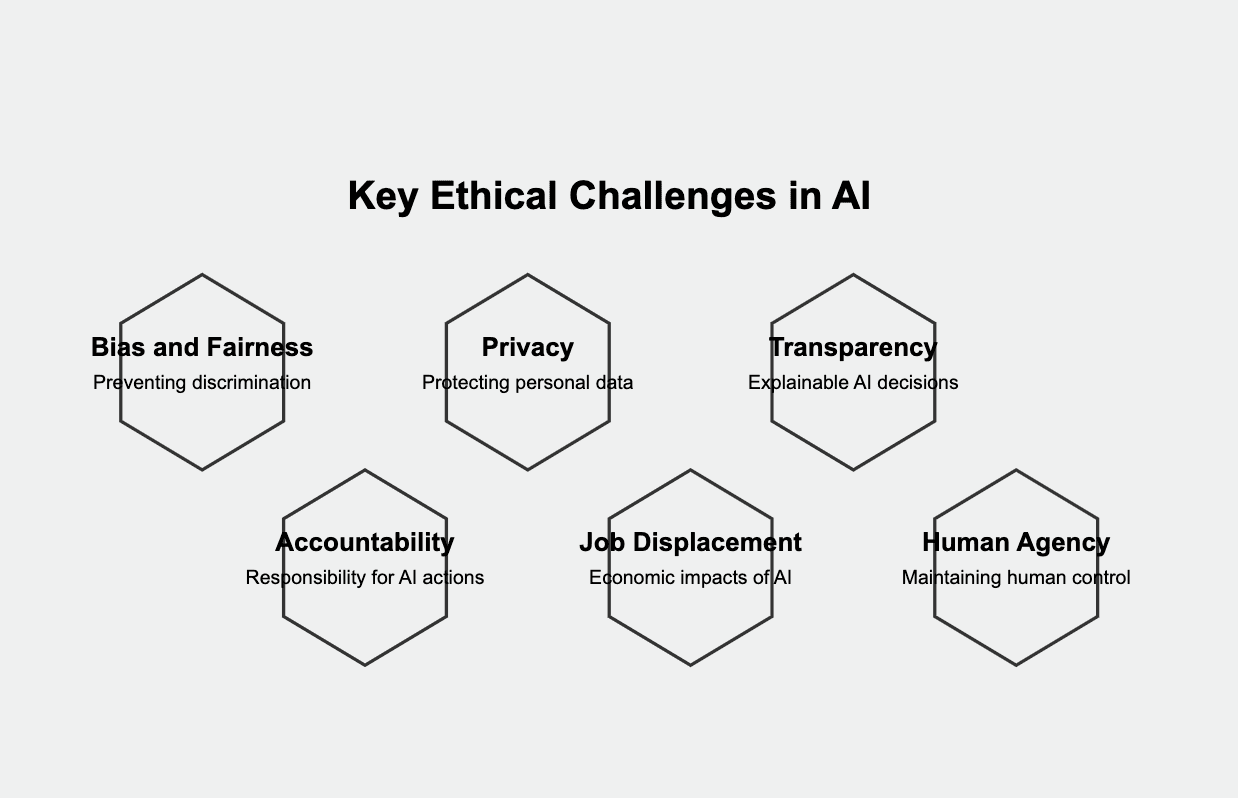Sep 12, 2024
AI Ethics and Governance: Shaping the Future of Artificial Intelligence
As artificial intelligence continues to permeate various aspects of our lives, the importance of AI ethics and governance has never been more critical. This comprehensive guide explores the ethical considerations surrounding AI development and deployment, as well as the governance frameworks necessary to ensure responsible AI use.
Understanding AI Ethics
AI ethics refers to the moral principles and values that guide the development, deployment, and use of artificial intelligence systems. It encompasses a wide range of considerations, from fairness and transparency to privacy and accountability.
Why AI Ethics Matters
Societal Impact: AI systems can significantly influence society, affecting everything from job markets to social interactions.
Decision-Making Power: As AI takes on more decision-making roles, ensuring ethical decision-making becomes crucial.
Potential for Harm: Unethical AI can perpetuate biases, invade privacy, or make harmful decisions.
Trust and Adoption: Ethical AI practices are essential for building public trust and encouraging responsible AI adoption.
Key Ethical Challenges in AI
The field of AI ethics and governance grapples with several key challenges:
Bias and Fairness: Ensuring AI systems don't discriminate or perpetuate existing societal biases.
Privacy and Data Protection: Balancing the need for data with individual privacy rights.
Transparency and Explainability: Making AI decision-making processes understandable to humans.
Accountability: Determining responsibility when AI systems make mistakes or cause harm.
Job Displacement: Addressing the potential economic impacts of AI automation.
Autonomy and Human Agency: Maintaining human control over critical decisions.
Security and Safety: Protecting AI systems from malicious use or unintended consequences.

Principles of Ethical AI
To address these challenges, several principles of ethical AI have been proposed by various organizations and experts in the field of AI ethics and governance:
Fairness: AI systems should treat all individuals and groups equitably.
Transparency: The decision-making processes of AI systems should be explainable and understandable.
Privacy: AI should respect and protect individual privacy rights.
Accountability: Clear mechanisms for responsibility and redress should be in place.
Safety and Security: AI systems should be robust and secure against potential threats.
Human-Centricity: AI should augment and empower humans, not replace or diminish human agency.
Beneficence: AI should be designed to benefit humanity and the environment.
AI Governance Frameworks
AI governance refers to the structures, processes, and policies put in place to ensure the responsible development and use of AI technologies. Several frameworks have been proposed to guide AI governance:
IEEE Ethically Aligned Design: A comprehensive framework for ethical AI development.
EU Guidelines for Trustworthy AI: Principles for ethical and robust AI systems.
OECD AI Principles: Recommendations for responsible stewardship of trustworthy AI.
Singapore's Model AI Governance Framework: Practical guidance for organizations to implement ethical AI.
Components of Effective AI Governance
Ethics Boards: Dedicated committees to oversee AI development and deployment.
Risk Assessment Protocols: Processes to evaluate potential ethical risks in AI systems.
Transparency Measures: Methods to make AI decision-making processes more understandable.
Accountability Mechanisms: Clear lines of responsibility and processes for addressing issues.
Stakeholder Engagement: Involving diverse perspectives in AI governance decisions.
The Role of Regulations in AI Ethics
Regulations play a crucial role in enforcing AI ethics and governance principles. Some key regulatory developments include:
EU's Artificial Intelligence Act: Proposed comprehensive regulations for AI systems in the EU.
China's AI Governance Principles: Guidelines for the development and use of AI in China.
US National AI Initiative Act: Framework for advancing AI research and development in the US.
Challenges in AI Regulation
Rapid Technological Advancement: Regulations must keep pace with fast-evolving AI technologies.
Global Harmonization: Balancing national interests with the need for international cooperation.
Balancing Innovation and Protection: Ensuring regulations don't stifle innovation while protecting against risks.
Implementing Ethical AI in Organizations
Organizations can take several steps to implement ethical AI practices:
Establish an AI Ethics Committee: Create a dedicated team to oversee AI development and use.
Develop AI Ethics Guidelines: Create clear, actionable guidelines for ethical AI practices.
Conduct Regular Audits: Perform ongoing assessments of AI systems for potential ethical issues.
Provide Ethics Training: Educate employees on AI ethics and responsible development practices.
Engage Stakeholders: Involve diverse perspectives in AI decision-making processes.
Implement Transparency Measures: Make AI processes and decisions more explainable to users and stakeholders.
Case Studies in AI Ethics
Examining real-world examples can provide valuable insights into the practical application of AI ethics and governance:
Case Study 1: Facial Recognition Technology
Scenario: A city government considers implementing facial recognition for law enforcement.
Ethical Concerns:
Privacy invasion
Potential for bias against certain demographics
Risk of misuse or unauthorized access
Outcome: Implementation delayed pending thorough ethical review and public consultation.
Case Study 2: AI in Healthcare Diagnostics
Scenario: A hospital implements an AI system for diagnosing medical conditions.
Ethical Considerations:
Ensuring fairness across different patient demographics
Maintaining doctor-patient relationships
Accountability for misdiagnoses
Outcome: Successful implementation with ongoing monitoring and regular ethical audits.
Future Trends in AI Ethics and Governance
As AI continues to evolve, several trends are shaping the future of AI ethics and governance:
Global Collaboration: Increased international cooperation on AI ethics standards.
Ethics by Design: Integrating ethical considerations from the earliest stages of AI development.
AI Auditing Tools: Development of automated tools to assess AI systems for ethical compliance.
Ethical AI Certifications: Creation of industry-recognized certifications for ethical AI practices.
Public Engagement: Greater involvement of the public in AI ethics discussions and policy-making.
Personalized AI Ethics: Tailoring ethical considerations to individual user preferences and cultural contexts.
Conclusion
The field of AI ethics and governance is crucial for ensuring that artificial intelligence technologies benefit humanity while minimizing potential harms. As AI systems become increasingly integrated into our daily lives and critical decision-making processes, the importance of ethical considerations and robust governance frameworks cannot be overstated.
By addressing key challenges such as bias, privacy, transparency, and accountability, we can work towards creating AI systems that are not only powerful and efficient but also fair, trustworthy, and aligned with human values. This requires ongoing collaboration between technologists, ethicists, policymakers, and the general public.
As we look to the future, the evolution of AI ethics and governance will play a pivotal role in shaping the trajectory of AI development and deployment. By fostering a culture of responsible innovation and ethical awareness, we can harness the transformative potential of AI while safeguarding the rights, values, and well-being of individuals and society as a whole.
The journey towards ethical AI is ongoing, and it requires constant vigilance, adaptation, and commitment from all stakeholders. By prioritizing ethics and governance in AI development and use, we can create a future where artificial intelligence serves as a powerful tool for human progress and empowerment, guided by the principles of fairness, transparency, and social responsibility.
